Opinion

We’ve gotten yet another reminder of the power of words in the past few days. A man immersed in racist words killed black people in a Kentucky grocery store. A man immersed in fearful words sent bombs to people labeled as threats. A man immersed in anti-Semitic words killed Jewish people in their synagogue.

In the richest nation in the history of the world, 140 million Americans are poor or low income — one emergency away from not being able to meet their basic needs. We cannot be distracted by arguments about which president or party in recent history had more quarters with over 4 percent economic growth while Congress seriously considers cuts to programs like the Supplemental Nutrition Assistance Program (SNAP) and the Children’s Health Insurance Program (CHIP). Donald Trump is not on the ballot this November, but the fate of poor people in America certainly is. In state legislature and congressional races, we must ask ourselves which candidates are willing to challenge the lies that keep millions of our neighbors in poverty.

Shirer’s comments and white evangelicals’ use of her statements are problematic because this way of thinking has been used against African-American Christians for years to prevent us from seeking justice and equality. It’s also used to neutralize our message that our lives matter too. White evangelicals use this way of thinking to deter people of color from protesting and challenging the political status quo. It’s a lazy attempt to avoid issues of race. Many pastors and church leaders don’t want to discuss race and how it affects their churches and denominations, especially during such a heated political climate. It seems that mainline churches would like people of color in their congregations to shut up about race and assimilate into their church culture masked as Kingdom identity.
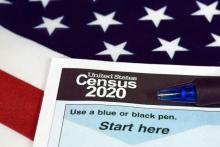
In March, the Trump administration added a question about citizenship to the 2020 Census. Multiple lawsuits have been brought against this addition. The last time some form of citizenship question was asked on the census was 1950. If this question wasn’t asked for six consecutive censuses, then why is the Trump administration pushing to reinstate it now?

It seems that no matter where we look, we are confronted with alliances between the religious right and the political right. The Christian right in the U.S. sees Donald Trump and his administration as some sort of a messiah for white Protestant Christianity. In Muslim-majority Southeast Asian states like Malaysia and Indonesia, various levels of government are finding it hard to not acquiesce to the demands made by conservative Muslim groups on matters related to condemning the LGBT community. Perhaps such incursions by the religious right into politics have become more prominent recently because they are abetted by the ascendancy of the authoritarian and anti-intellectual personality.
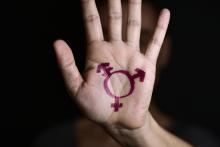
There is a great power and dignity in being seen. Seeing conveys worth. It welcomes the outsider into our world, gives them the courage to speak up, and assures them that what they have to say won’t fall on deaf ears. It should come as no surprise that Jesus was a champion for the unseen.

Trump's rallies, like his tweets, have been hard to watch, but they clearly reveal a political strategy of fear, based on continual and unapologetic lying, which deliberately evokes racial resentment and hatred. This president’s purpose is indeed to divide us, especially along racial lines. Again, we don’t yet know who is directly responsible for this latest string of violence, but it can no longer be said that there is no relationship between violent presidential rhetoric against opponents and the media, and the violent action against those very people. You can no longer say, “I don’t like his rhetoric and tweets, but I like his policies."

I have met Silence. The ghostly silence of dust balls and mites, of cobwebs and sunbeam shadows in the cold crumbling cubicles off the Liberian coast where African persons spent their last nights and then lost sight of their land forever. I have felt the stony silence of apartheid era prisons in Johannesburg and Cape Town. I have seen the nostalgic silence of colonial desolation on the Harare Kopje, in Zimbabwe. But this silence at The National Memorial for Peace and Justice is like none other. A requiem.
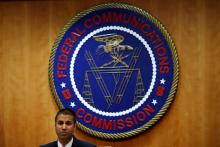
Last month, social justice advocates gathered outside of the Federal Communications Commission to speak out. Aja Taylor with Bread for the City — a direct service organization in Washington, D.C. — stopped us in our tracks with this question: “Can you imagine being on the wait list for subsidized housing for eight years, but miss your opportunity because when your name finally comes up, no one can reach you?”
It is stories like these that reinforce my belief in the fundamental connection between communications justice and social justice. Communication is a human right —a tool that connects us to our communities, helps to disclose injustice, and facilitate innumerable aspects of modern life.

Juliana was in high school when she first joined Our Children’s Trust to sue the Governor of Oregon for a stable climate. During my environmental education classes, I’ve discussed the litigation to illustrate the importance of a long-term view even for an urgent planetary crisis. When my undergraduates prepare conservation workshops for local schools, they know that Juliana once sat in their places. She hopes to advocate for them in the U.S. District Courthouse in Eugene, Ore. in what may be the lawsuit of their lifetimes. And regardless of this Supreme Court’s decision, youth will gather on the courthouse steps to call for their right to a stable climate.

I want students at Christians schools to have what I didn’t get to have. I want to see Christian schools actively teach the failures of the historic and modern church in America. I want to see curriculum created on how most Christians responded – with Bible verses in hand – to justify what we now know to be unjust. I still think teaching students about outliers like Wilberforce, Bonhoeffer, and MLK Jr., Christians who defied the church for the sake of justice, is important, but students should also be taught that the church can get it wrong, has gotten it wrong, will get it wrong.

For too many Christians, the argument that we should love others because Jesus told us to becomes a begrudging obligation rather than a willful choice. If the only thing that drives Christians to accept disenfranchised people is Jesus, there is a lack of authenticity in that connection. The implication is that without Jesus, there would be no intrinsic value to diversity.

A new study published in Christianity Today claims to debunk dominant narratives around the 81 percent of white evangelicals who voted for Donald Trump in 2016. New York Times columnist David Brooks shared it and concluded: “Many Evangelicals voted for Trump, reluctantly, because of economics and health care more than abortion and social issues.” If this sounds too good to be true, it’s because it is.

The work of liberation is long and hard, but music is one way we are sustained and renewed. I asked women in the throes of decolonization, activism, community organizing, pastoring, and liberative writing what songs encourage them as they engage in the work of justice and resistance. Here are their responses.
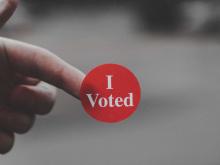
It just keeps happening. Voter suppression that is. Too many political leaders — who are disproportionately white — will use every option available to try and prevent some — disproportionately people of color — from voting. It just keeps happening, and many Americans either don’t know, don’t care, or wholeheartedly favor denying their fellow citizens of color the right to vote. Because it keeps happening, we must ask if support for this practice is as prevalent for white Christians as it is for white non-Christians.

White Christians benefit the most by being nationalistic and patriotic, because to do so upholds the methods of “law” that keep their societal privileges in place. So while America — it’s governmental machinations and economy — serves to continually bless and protect white Americans, it hasn’t done so for others. Incarceration rates, a vast history of enforced racism by the legislative, judicial, and justice branches of government, the mistreatment of people of color within the military, and the brutalization by police show just how one-sided our country has benefited particular groups of people because of race. As white Christians blissfully sing ‘God Bless America’ in their sanctuaries adorned with American flags, they look upon their country — and its many structures — with nostalgic pride, while others see betrayal, hurt, and suffering.
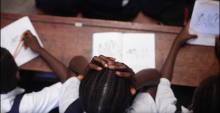
Unprotected, a report and documentary by Finlay Young and Kathleen Flynn, recently resurfaced a story about the charity organization, which was built from a young woman’s crusade to lift girls from poverty and change the education system in Liberia. Within a year of the first school building opening, sexual abuse allegations emerged.

A new United Nations report by the Intergovernmental Panel on Climate Change (IPCC ) paints a dire future for life on earth. Even if nations are able to fulfill commitments made during the 2016 Paris Agreement, the report asserts that the world is still headed in the direction of warming by 3 degrees Celsius or more - a temperature increase that would drive worsening food shortages, wild fires, heatwaves, coastal flooding, and poverty.

For these characters, and for many black people in America, this is the way life is. Thomas’ novel won a plethora of praise and awards after its 2017 release for combining the social realities of life as a young black woman in contemporary America with a heartfelt coming-of-age narrative that resonated with a diverse array of readers. George Tillman Jr.’s film adaptation of the book, out now, admirably walks that same line. From every aspect, the film shows great respect for its source material, with an excellent script and stunning cast who clearly care about the story they’re telling.

When I was raped by a fellow student 3.5 years ago, I was treated egregiously by both the administration of my school — Baylor University — and the broader community in the fallout. But do you know who didn’t fail me? My church.